by admin | 2 Sep, 2014 | Our Blog
 This week, the Vote Choice series looks at Dr Jamie Whyte, the leader of the ACT party, and his views on abortion and decriminalisation. A google search of Whyte and abortion provides little in the way of his opinion but does provide an interesting array of articles to read, many from his lecturing days in the UK and/or other academic responses to some of his philosophical arguments. So it was back again to Family First’s Value Your Vote page for information on where Whyte stands in relation to abortion law reform (thanking them is becoming a bit too common for comfort, just saying).
This week, the Vote Choice series looks at Dr Jamie Whyte, the leader of the ACT party, and his views on abortion and decriminalisation. A google search of Whyte and abortion provides little in the way of his opinion but does provide an interesting array of articles to read, many from his lecturing days in the UK and/or other academic responses to some of his philosophical arguments. So it was back again to Family First’s Value Your Vote page for information on where Whyte stands in relation to abortion law reform (thanking them is becoming a bit too common for comfort, just saying).
It has always been ALRANZ’s understanding that despite the libertarian positioning of the party that it was generally anti-choice. Possibly this perception has been clouded by Andy Moore’s former role as an office-holder of ACT on Campus. However, Whyte seems to be setting a different tone in relation to abortion law reform.
Whyte received sad faces from Family First, in the following areas:
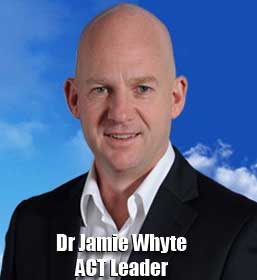 Supports decriminalization of abortion with note that this should be “subject to a restriction regarding the age of the foetus”.
Supports decriminalization of abortion with note that this should be “subject to a restriction regarding the age of the foetus”. - Opposes “informed consent” for abortion (which is usually anti code for telling pregnant people medically unverified lies – e.g. an abortion could increase the risk of breast cancer – something that has no basis in science!)
- Undecided on the right to life of the unborn child, which he caveats with the comment: Which unborn child are you talking about? A 6 week old foetus or a 37 week old foetus? The difference is important.
ALRANZ would also agree. There is a difference between a fully viable baby at 37 weeks and one still in an embryonic state at 6 weeks. Although it is always good to point out the obvious that no doctor would perform a ‘termination’ at 37 weeks so this is a bit of a false dichotomy; but one that might explain his comment of only supporting decriminalisation in relation to restrictions on the age of the fetus. He may sympathise with the Greens’ policy, which would only allow abortion on request up to 20 weeks?
Where we disagree (and we’d be interested to know his rationale for this) is on parental notification. He would support attempts to change the law to require parental notification for abortions where the pregnant person is under 17.
All in all Jamie Whyte, and perhaps even the party itself, would appear to be a potential ally for a very narrowly focused abortion law reform effort. Out of those ACT candidates that responded to Family First (5 out of 12, including Whyte), three support law reform (Whyte, John Thompson and Stephen Berry), while David Seymour is undecided and Ian Cummings oppose it.
However, taking a wider reproductive justice view, and given ACT’s opposition to free healthcare — its policy (pdf) says “ACT does not support free healthcare as this results in the provision of a service which is not valued” — as well as its “one country, one law” attacks on Māori, any alliance over decriminalisation would likely break down over treatment of marginalised groups and access to abortion services. It’s no use decriminalising abortion if access to services, as well as to health-care in general (not to mention income equality) — are reduced through other means.
Seymour’s comment was “The current law is unclear and should be clarified so that the law is in line with actual practice and so that all cases are treated equally. Such a law would be a conscience vote and I would be guided by my electorate if elected. There seems to be some potential there.
******************
CLICK HERE TO DONATE
TO HELP US CONTINUE OUR PRO-CHOICE WORK
by admin | 5 Aug, 2014 | Our Blog
 This week the Vote Choice Series is featuring the leader of the Labour Party, David Cunliffe, and his views on abortion law reform. While Mr. Cunliffe has not to date subjected himself to the Bob McCoskrie/Family First show, he did make a brief comment on abortion as part of the Labour leadership race last year. Thanks to Young Labour, spearheaded by the great Jessie Lipscombe, all leadership candidates were asked about law reform. This is what Cunliffe had to say:
This week the Vote Choice Series is featuring the leader of the Labour Party, David Cunliffe, and his views on abortion law reform. While Mr. Cunliffe has not to date subjected himself to the Bob McCoskrie/Family First show, he did make a brief comment on abortion as part of the Labour leadership race last year. Thanks to Young Labour, spearheaded by the great Jessie Lipscombe, all leadership candidates were asked about law reform. This is what Cunliffe had to say:
“I want to see a woman’s right to choose protected. The current law hasn’t been reviewed for many years and I think that is now urgent. The Law Commission would be best placed to undertake this review as it is a conscience issue which splits across parties”.
The statement starts off on a positive note, with Cunliffe touting his pro-choice credentials. However he then makes a deft political move of side stepping the issue and placing it into the hands of the Law Commission. Regardless of the possible merits of the Law Commission route, in this instance it seems to be a both a conciliatory act and 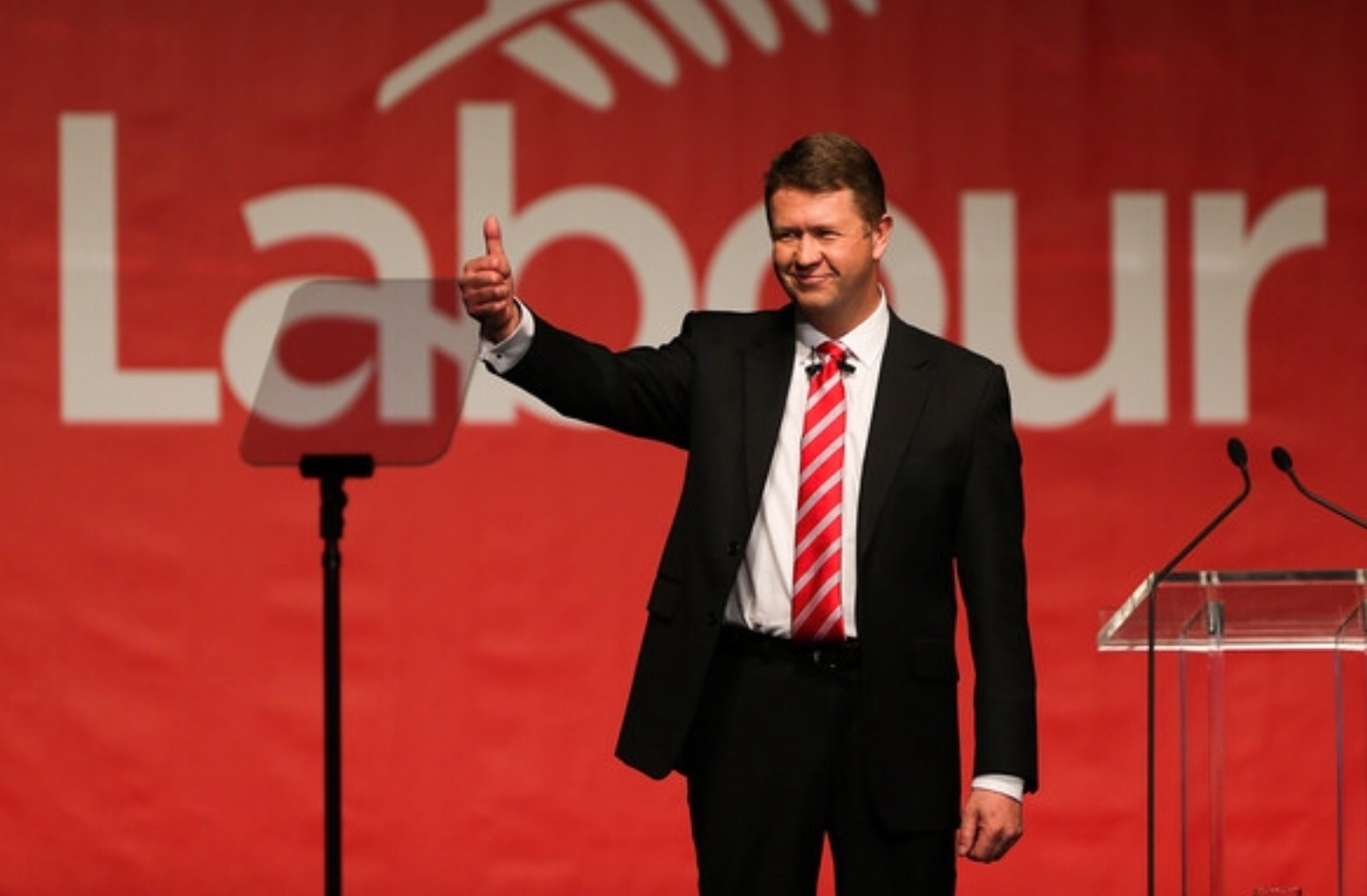 an easy out on the part of the would-be leader. Specifically, a review by the Law Commission will not shift the ability of MPs to vote their conscience (i.e its recommendations are unlikely to change the views of the dyed in the wool antis), but it does have potential to provide legitimacy to what is presumed to be a review that would change the law for the better. (Remember how well that went in the 70s with the Royal Commission, which we can safely blame for the confusing and useless law we currently have.)
an easy out on the part of the would-be leader. Specifically, a review by the Law Commission will not shift the ability of MPs to vote their conscience (i.e its recommendations are unlikely to change the views of the dyed in the wool antis), but it does have potential to provide legitimacy to what is presumed to be a review that would change the law for the better. (Remember how well that went in the 70s with the Royal Commission, which we can safely blame for the confusing and useless law we currently have.)
It kind of sounds like we’re not even satisfied with what is overall a pretty positive statement from a potential Prime Minister. However even Brendan Malone (Pro-Life NZ) in his blog the Leading Edge thought this statement reflected Cunliffe’s desire to appear moderate (we don’t often agree so that is a momentous statement!). And it is this attempt at moderation that irks; no woman’s sexual and reproductive health should be subject to political game playing. Cunliffe is certainly not alone or the worst at side stepping the issue by deferring it to other institutions. As we know a similar approach worked in Victoria, Australia in 2008 and the outcome there was a law that allows abortion up to 24 weeks.
A look at Cunliffe’s previous voting record does further contextualize what we acknowledge was a one off statement at the time he was seeking to make himself palatable to the Labour Party members. Unlike Key, Cunliffe did not support any of the amendments in favour of parental notification in 2004. He has also consistently voted for candidates for the Abortion Supervisory Committee that are relatively liberal in their views, and against those who are supported by the antis.
In Summary…
Overall we’d be pretty positive about David Cunliffe’s position on abortion law reform and give him the pro-choice tick from ALRANZ. However we would like to see greater leadership from him on the issue. If he truly wants to see a woman’s right to choose protected then more than a pro-choice side step is needed; change will come when politicians do not feel compelled to cower behind judicial organizations to be effective.
by admin | 22 Jul, 2014 | Our Blog
 Welcome to ALRANZ’s Vote Choice series, where we offer you our views on candidate’s opinions on abortion and reproductive justice, so that you can make an informed decision on 20 September. We encourage members to go along to candidate forums or local meetings and ask candidates where each stands on abortion. You can send through your intel to info@alranz.org so that we can begin to profile candidates and their views. Or if you would like to feature a candidate and write up their position for the blog, please send that through to us for posting.
Welcome to ALRANZ’s Vote Choice series, where we offer you our views on candidate’s opinions on abortion and reproductive justice, so that you can make an informed decision on 20 September. We encourage members to go along to candidate forums or local meetings and ask candidates where each stands on abortion. You can send through your intel to info@alranz.org so that we can begin to profile candidates and their views. Or if you would like to feature a candidate and write up their position for the blog, please send that through to us for posting.
John Key – the fence sitter
This week’s featured politician is John Key. Thanks to his recent interview with Bob McCoskrie from Family First, we now have a better sense of his position on abortion: fence sitter – not coming down clearly 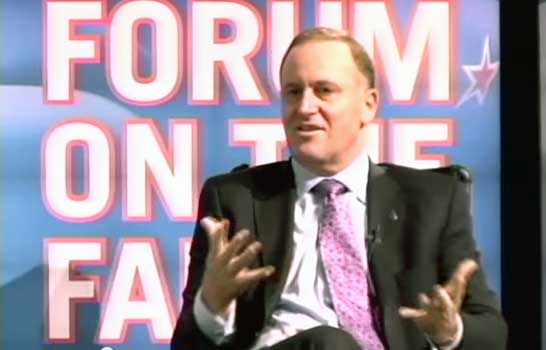 for or against. Key said he wasn’t in favour of law reform; he is in favour of parental notification; but he didn’t seem to be against abortion per se.
for or against. Key said he wasn’t in favour of law reform; he is in favour of parental notification; but he didn’t seem to be against abortion per se.
The interview with Key highlighted two things: one, the Prime Minister doesn’t have a clear grip on the current laws; and two, assuming these were genuine responses, he expressed some mixed feelings on abortion. On the former, Mr. Key is not alone in being confused by the law. You only have to read the Contraception, Sterilisation and Abortion (CS&A) Act to become terribly confused about just how a pregnant person goes about getting a legal abortion. However, while non-elected officials can be excused from reading dry pieces of legislation, politicians shouldn’t be forgiven their ignorance, particularly in the context of a recorded interview where you likely already know the questions and you still don’t bother to do your homework!
Voting Record
The minimal amount of information we have on Key’s record on abortion comes from previous votes on legislation and the appointment of Abortion Supervisory Committee (ASC) members, and reflects the fence sitter position. The 2004 debate on the Care of Children Bill on parental advisement is the only piece of legislation we have to go on (all the other votes were in relation to the appointment of ASC members where he voted liberally twice (both in 2007), conservative once (2007) and abstained/absent in 2011). He voted in favour of Judith Collin’s amendment, which would have made parental notification for an under-16 year old’s abortion mandatory.
In the McCoskrie interview, Key simultaneously reinscribes abortion stigma by using some quintessential anti-language, saying he wouldn’t want to liberalise our current abortion laws because “people would see it as a legitimate contraception device,” while also accepting that most abortion decision are made because it is “an unwanted pregnancy and they feel that they can’t cope or don’t want to at that point in their life raise a child”. Obviously the claim that abortion is a type of contraception is spurious, or as one ALRANZ member said, “that is literally impossible, to use abortion as contraception”: one prevents fertilisation and pregnancy in the first instance, while the other is used to end a pregnancy. Claims like this are often used to argue against abortion and implicitly mean something like, “Hey women, clearly you were irresponsible by getting pregnant in the first place so now you can’t or shouldn’t be trusted to make a decision about terminating a pregnancy”. Yeah, no.
After stating clearly that he is opposed to liberalising the law because it would cause some spate of abortions as a form of contraception, Key then acknowledged that raising children is a pretty difficult thing to do, particularly if you are a solo mum. Reading between the lines, he seems to be arguing for abortion under socio-economic grounds! And while he doesn’t want to move the debate forward, he also doesn’t want to go backward: “And I suppose my only point would be if abortion laws went the other way you would without doubt have more young people having children and the question is would they be in the best situation to cope with that if by definition they’re saying at the moment they can’t”. And we all know the answer to this is no – women would not be in a better situation if they were forced to carry a pregnancy to term and raise a child they felt they were not able or capable of providing for.
Unfortunately that part of the interview ends on a sour note, with Key firmly supporting parental notification…
All in all, a mixed bag from our Prime Minister in terms of abortion law reform and trusting women.
CLICK HERE TO DONATE
TO HELP US CONTINUE OUR PRO-CHOICE WORK
by admin | 15 May, 2014 | Our Blog
It’s Election Year, as if you didn’t know. We’ve updated and re-designed our “16 Reasons to Change NZ’s Abortion Laws” factsheet — useful if you’re lobbying MPs or candidates, or attending meetings and asking questions. Or, just useful. You can download a pdf of the ’16 reasons’ here, or access it in HTML below the images in this post. Also check out some of our other downloadable factsheets by clicking here. We’ll be adding more as the year goes by, so stay tuned.
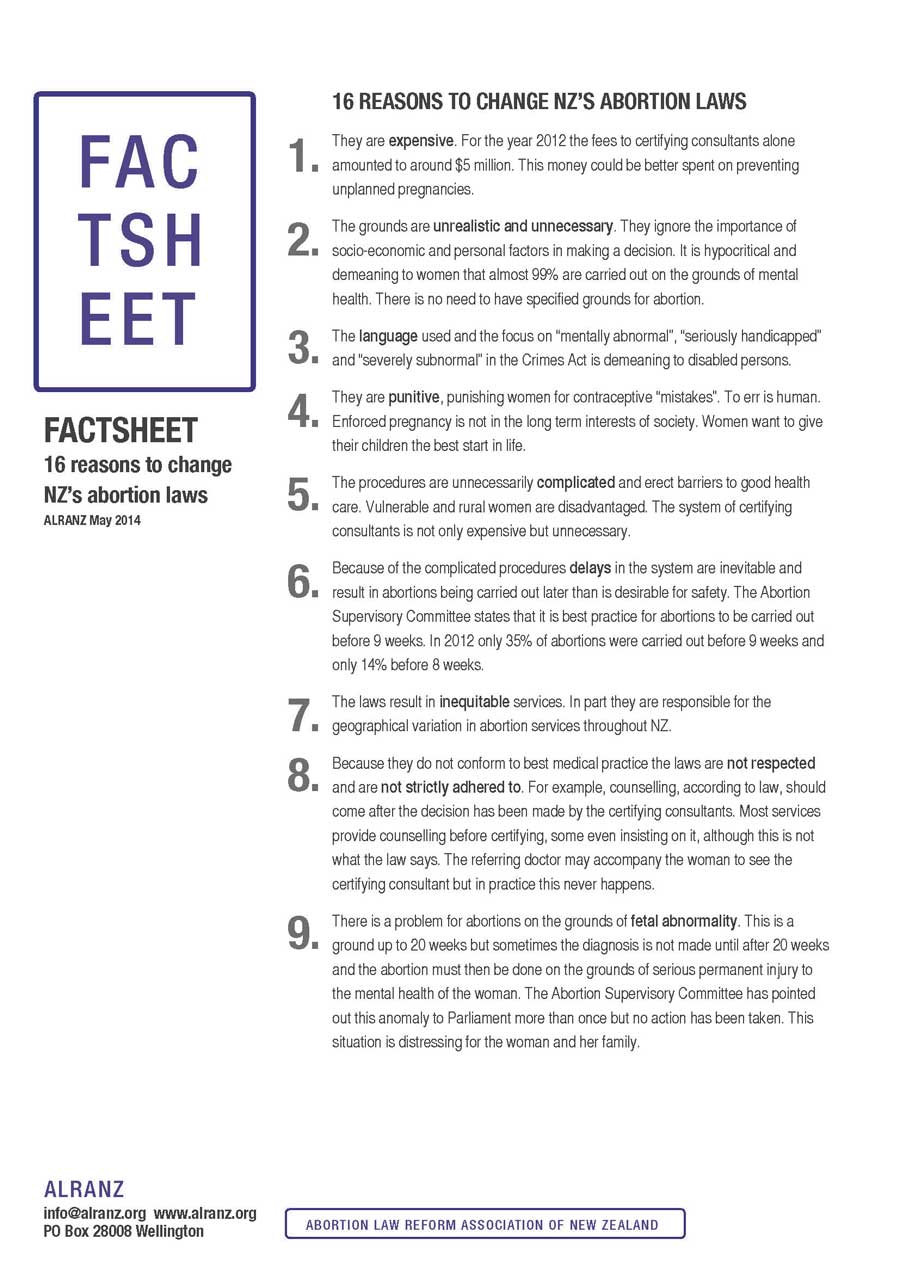
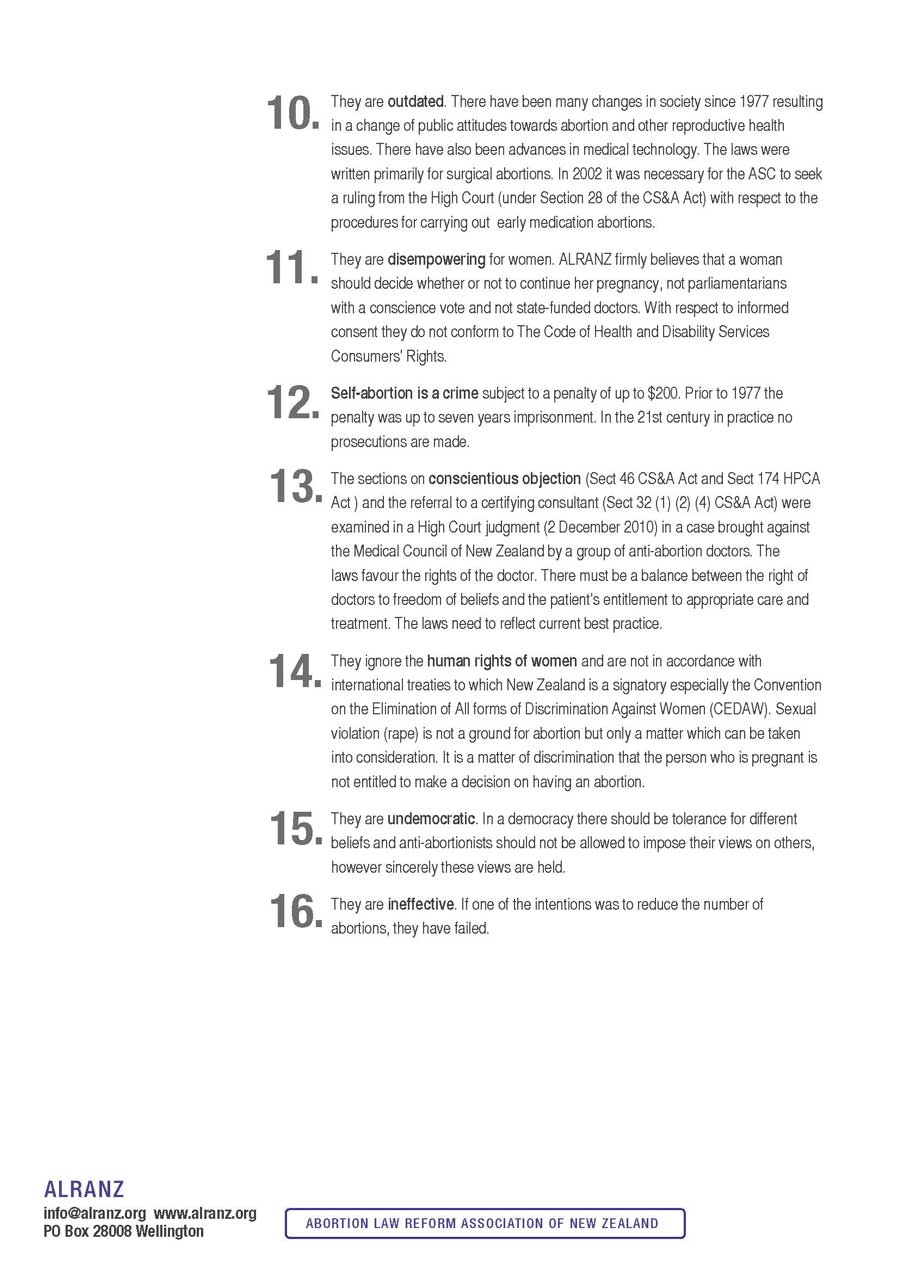
Click “continue reading…” below to access the Factsheet in html in this post.
(more…)
 This week, the Vote Choice series looks at Dr Jamie Whyte, the leader of the ACT party, and his views on abortion and decriminalisation. A google search of Whyte and abortion provides little in the way of his opinion but does provide an interesting array of articles to read, many from his lecturing days in the UK and/or other academic responses to some of his philosophical arguments. So it was back again to Family First’s Value Your Vote page for information on where Whyte stands in relation to abortion law reform (thanking them is becoming a bit too common for comfort, just saying).
This week, the Vote Choice series looks at Dr Jamie Whyte, the leader of the ACT party, and his views on abortion and decriminalisation. A google search of Whyte and abortion provides little in the way of his opinion but does provide an interesting array of articles to read, many from his lecturing days in the UK and/or other academic responses to some of his philosophical arguments. So it was back again to Family First’s Value Your Vote page for information on where Whyte stands in relation to abortion law reform (thanking them is becoming a bit too common for comfort, just saying). Supports decriminalization of abortion with note that this should be “subject to a restriction regarding the age of the foetus”.
Supports decriminalization of abortion with note that this should be “subject to a restriction regarding the age of the foetus”. 





